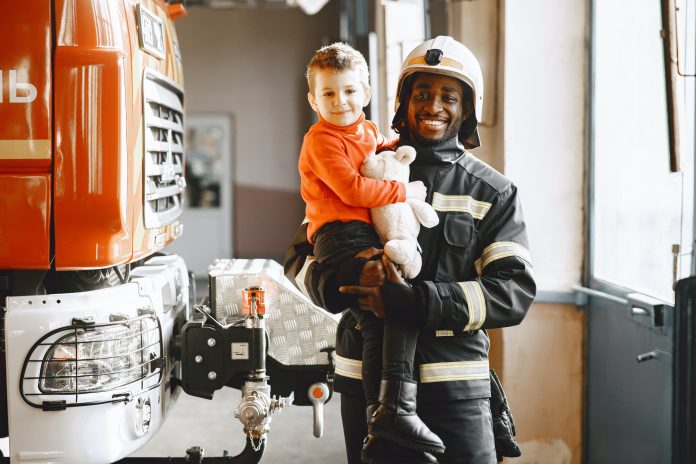Preventing household fires is one way to prevent injury or death from burns. Here are a few tips on how to keep your family safe around fires and open flames.
- Teach children that only grown-ups use fire. Keep lighters and matches out of reach of children.
- Use at least one smoke alarm on every level of your home. Be sure to put an alarm outside sleeping areas and inside bedrooms. Test all smoke alarms monthly and change the batteries at least once a year if they are not lithium batteries. It may help to schedule a regular date, such as the first day of each month, to check alarms and to change batteries on the first day of fall or the first day of spring every year. Replace smoke alarms every 10 years.
- If you live in an apartment building or group living facility such as a dorm, make sure that you know the number of doors between your room and the nearest emergency exit.
- Keep multipurpose fire extinguishers in your kitchen, garage, and other areas where hazardous materials may be stored or used. These extinguishers are labelled with “ABC”—”A” is for wood, paper, and trash fires; “B” is for grease fires and flammable liquids; “C” is for electrical fires.
- Check and clean appliances regularly. Replace cords when needed.
- Ensure that space heaters, wood stoves, and furnaces are regularly inspected and properly installed. Do not use space heaters while you are asleep or when you are not in the room. Keep all heating elements at least three feet away from items that can easily catch fire, such as curtains or rugs. Only use electric space heaters that turn off automatically if they tip over. Do not use an oven to heat a room.
- Have your fireplace and chimney inspected yearly and cleaned as needed.
- Be careful with lit candles. Always monitor their use and keep them out of children’s rooms. Use flashlights rather than candles if there is a power outage.
- If you smoke in the bedroom, be sure that you have a smoke alarm there. It’s safest if you do not smoke or allow smoking in your home. If you need help quitting, talk to your doctor about programs and medicines to help you quit smoking.
Fire Survival Skills
Teach your children about how to survive in a fire. Some very young children will not understand these concepts but start discussing the issues early and repeat frequently.
- Everyone needs to leave the home as fast as they can when a smoke alarm sounds.
- Plan and periodically practice escape routes. Make sure that there are at least two escape routes from each area of your home, including upper stories and the basement.
- Firefighters in full gear frighten some children. Explain to your child why firefighters need equipment and show them pictures. Tell children not to hide from firefighters.
- Show your child how to stop, drop, and roll if any part of his or her body or clothing catches on fire.










